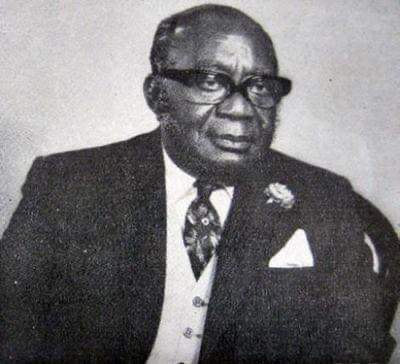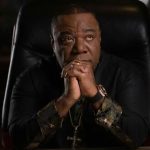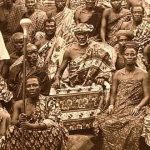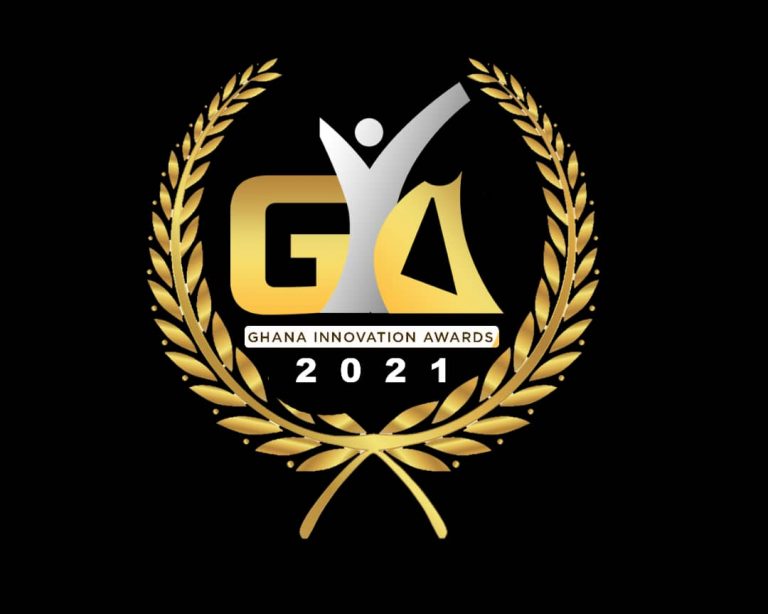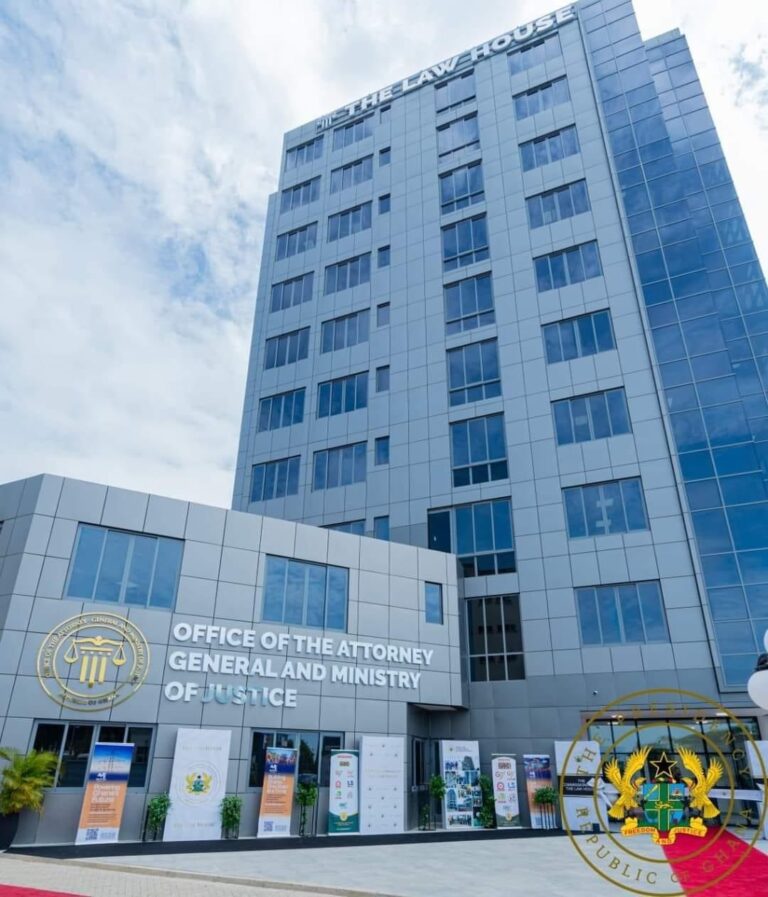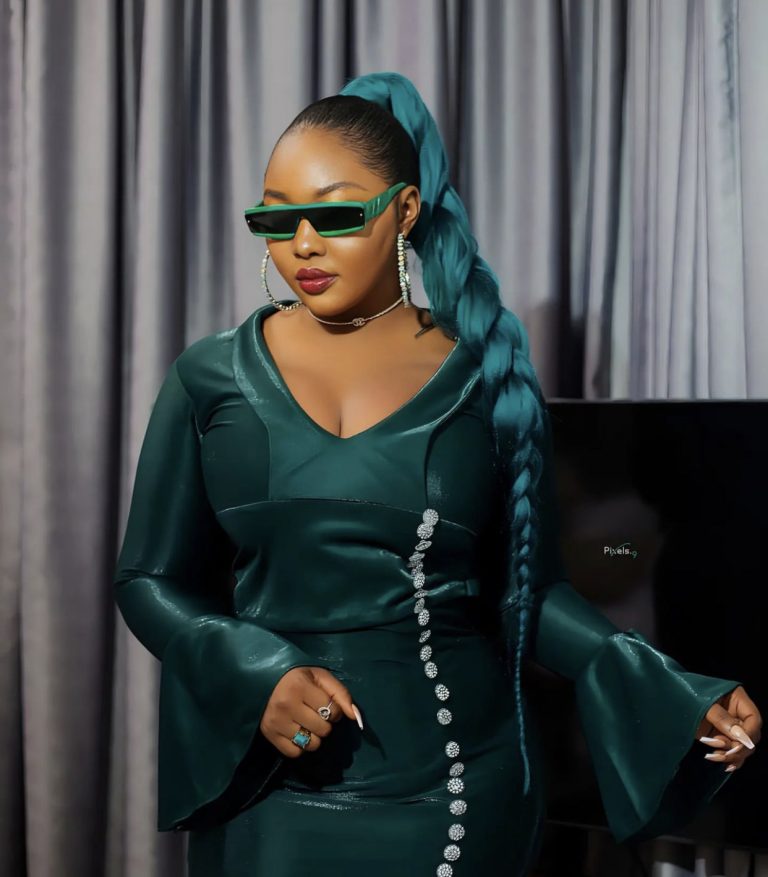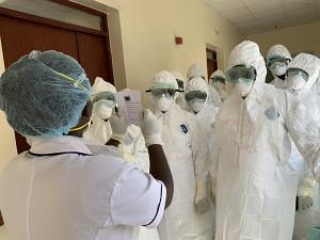Encounters with Edward Akufo-Addo
By ProfessorKwesi Yankah
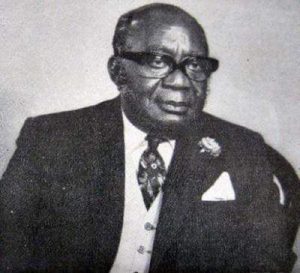
Here comes the father of President Nana Akufo-Addo, Edward Akufo-Addo, a formidable Big Sixer, who adds significantly to the luster of ancestral relations, encircling the current President of Ghana. Mr. Edward Akufo-Addo, former President of Ghana. Indeed, three of the Big Six are kinship relations of Nana Addo Dankwa Akufo-Addo.
Nana Addo is the grandnephew of J. B. Danquah, the illustrious nationalist and doyen of Gold Coast politics; he is also the nephew of William Ofori Attah (Paa Willie), statesman, nationalist, clergyman; and the son of Edward Akufo-Addo, Ghana’s past President (1969 till 1972), whose democratic tenure with Dr K. A. Busia, the Prime Minister was rudely interrupted by General I K. Acheampong’s military junta.
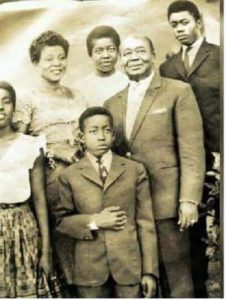
The Man
Born in 1906, three years before Kwame Nkrumah, Edward Akufo-Addo was a leading member of the Big Six of the UGCC. An Oxford scholar, he was Ghana’s Chief Justice from 1966 to 1970, and became the President of Ghana, with Dr K. A Busia as Prime Minister in 1969, until their Government suffered a military coup d’etat in 1972. He and Dr Busia’s government, the Progress Party, were in power for only 27 months. Their era constituted Ghana’s Second Republic.
It poses a dilemma to be born into a network of celebrity kinsmen and achievers. Your family circumstances could inflate your ego, but may also belittle your persona. Most importantly, anybody so richly sandwiched by family nobles need not cross the street in search of mentors!
Legon Days
I never met President Edward Akufo-Addo himself face-to-face, but felt his presidency along with K. A. Busia while I was virtually a toddler at the University of Ghana. And I remember their formidable impact on Ghana’s rural development, as well as the libertarian principles and rule of law their party stood for. Their Government, the Progress Party, also introduced a loan scheme for university students who could not afford the new tuition fee regime introduced. But we never forgot the famous confrontation between the Prime Minister (not President Akufo-Addo himself) and one political science student, Ebo Hutchful (now a professor in US), who brazenly confronted the Prime Minister in front of the Legon bookshop, and vehemently protested some materialism evident among his government appointees. The Prime Minister, in the name of free speech, was said to have swiftly intervened when his security detail sought to arrest the student.
But even if I never met President Edward Akufo-Addo personally, it was a consolation having met three of his children (‘Bumpty,’ Marigold, and Nana). I was classmates with Edward ‘Bumpty’ Akufo-Addo in the first year of university life in the English Department Legon, until we parted ways in subsequent years in the early 1970s. A quiet, pensive student Bumpty, son of the President, was polite, friendly and cautiously interactive.
But I also briefly robbed shoulders several years later with the former President’s daughter and cultural activist, Marigold Akufo-Addo (Nana Addo’s sister), as a fellow Council member of the Ghana Commission on Culture along with Kofi Anyidoho, J H Nketia, Nana Ayensua Saara, Mac Tontoh, etc. This was during the Kufuor regime from 2002 onwards. I have since lost touch with Marigold.
Meeting Nana
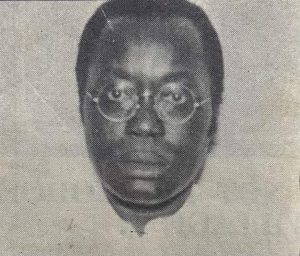 Akuffo-Addo in 90s
Akuffo-Addo in 90sThe most enduring encounter in the past years, however, has been with President Edward Akuffo-Addo’s big Boy, Nana Addo Dankwa Akufo-Addo, now President of Ghana.
I first met him at the University of Ghana New Year School in 1991, at the tail end of Rawlings’ 10-year-long PNDC rule. This was on the eve of Ghana’s transition to constitutional rule, when I had given a keynote address on ‘Media and the Politics of Silence.’ But that year, I also chaired a very stimulating panel discussion on constitutional governance. The venue for that event, Commonwealth Hall Library, was unexpectedly filled to capacity hours before the event started. The reason was simple; the advertised speakers included the late Professor P. A. V. Ansah, the celebrated Director of the School of Communications Studies, Legon, known for his bombast and vitriol against Jerry Rawlings’ military government. But the advertised panel also included one articulate young man in his 40s, who had been a restless crusader against dictatorships, and was still active in the quest for constitutional democracy in Ghana.
He was Nana Addo Dankwa Akufo-Addo whom I had only heard of, and was meeting for the first time. Nana had indeed been an activist for democratic governance firi tete.
Soon after the 1991 New Year School encounter, I got to know Nana better during an Uhuru magazine interview with him in 1992. Interviewers were Senior Kojo Yankah and my good self, and the topic was political prisoners in Ghana, where we sought to explore the allegation by Amnesty International that Ghana had about 50 political prisoners languishing in jail without due process during Rawlings’ PNDC. And who better to speak to this than this zealous activist, whose mentors were all part of the famous Big Six, to whom political detention was no news.
Ofiri Tete
Several years before then, in 1977/78, Nana Akufo-Addo had played an active part in the struggle against the Kutu Acheampong dictatorship, as the General Secretary of the People’s Movement for Freedom and Justice. At that time, he was also President of the Greater Accra chapter of the Ghana Bar Association, besides his involvement in the formation of Ghana’s chapter of the Committee on Human and People’s Rights, which had branches throughout Africa. Nana Addo’s adversarial attitude towards the Acheampong government had additional significance: it was that military junta that had prematurely retired his father from politics in 1972, eventually paving the way for the old man’s demise in 1979.
Nana Addo had then spent a greater part of his life fighting dictatorship. 1991, the eve of Ghana’s return to constitutional rule, indeed marked a major milestone in the long walk to freedom. J. B Danquah his grand uncle had died in 1965; his father, Edward Akufo-Addo, had departed in 1979; and Paa Willie his uncle was called to glory in 1988. It was Nana’s duty to keep the family torch burning, a flame that was lit by his kindred within the Big Six long before Ghana’s independence.
There has not been enough time to narrate the best part of the story: Nana’s as my personal lawyer in my legal battle with the Ghana Broadcasting Corporation in 1994. The GBC had simply maligned me in a UTAG-related ‘scandal’ I knew absolutely nothing about. I was Dean of Students at Legon, and the GBC paid dearly for it. Nana’s Chambers, featuring he himself, defended me at an Accra High court, and won the case for me hands down. The GBC was down at my feet, and was asked to pay huge costs for defamation. Of course, I did not collect the fees. I was only interested in clearing my name. And what was the lawyer’s fees I paid to Nana? The legal luminary told me, I didn’t owe him. His services were for free.
The entire six-month legal tussle in 1994 indeed cost me NOTHING. Thank you, Nana. Thank you the Big Six.
EXTENDED FOOTNOTE
For the young ones.
Ghana has learned to number our civilian Governments through the number of military interventions. Thus, after every military break, the next civilian rule is given a number following from the previous civilian rule.
Nkrumah’s civilian government did not have a number originally. We later called it the First Republic only on hindsight, on realizing it may otherwise be lost in the avalanche of subsequent military interruptions. After Nkrumah’s ousting and subsequent military intermission by Ankrah/Kotoka etc, (1966-1969) the next civilian government could only be called the Second Republic, and that was the Akufo-Addo/Busia rule. When Busia/Akufo- Addo were ousted in 1972, we needed no consulting to name or number the subsequent civilian rule. It was the Third Republic headed by Dr Hilla Limann (1979-81) because he came after the first JJ military coup of 1979. Rawlings interrupted Limann’s Third Republic in 1981 and stayed till 1992. When he handed over to himself this time as a civilian government, it earned his new coming the name 4th Republic. Rawlings’ military government from 1981 to 1992 of course was numberless, since it was an intrusion. Kufuor, Mills, Mahama, Nana Akufo-Addo from 2000 till date have not attracted extra serial numbers; they are still within the 4th Republic because there have been no rude interruptions.
Since there has been no coup d’etat after Rawlings’ civilian rule from 1992, Now Thank we all our God: it has saved Ghana the trouble of going to the classroom once again for serial numbers.
This indeed tells you how coups have succeeded in turning a whole Ghana into Class One Pupils. One Two Three Four, First Second Third… Indeed, there have been so many of them, we need counters to help us out of this confusing mix of numbers. So, therefore may this Fourth Republic bring to a halt any further Republics, and any new serial numbers.
May all those who agree with me say aye….. The ayes have it!
Signed.
Prof Kwesi Yankah
Former Minister of State, Tertiary Education

